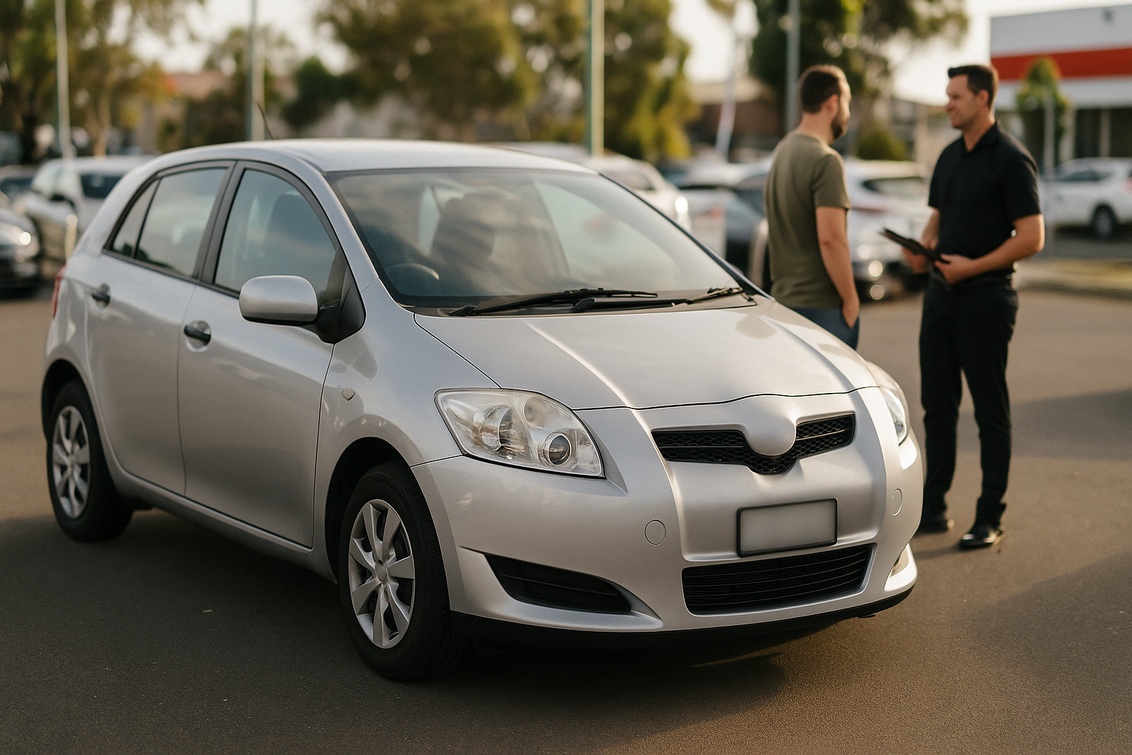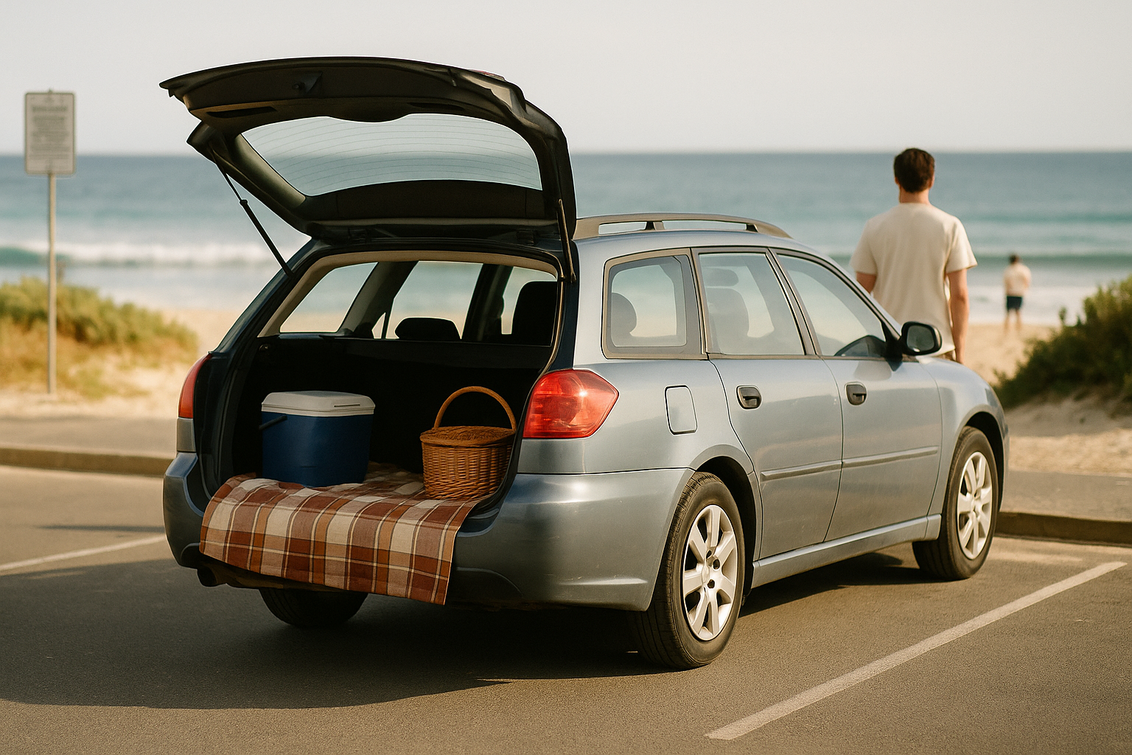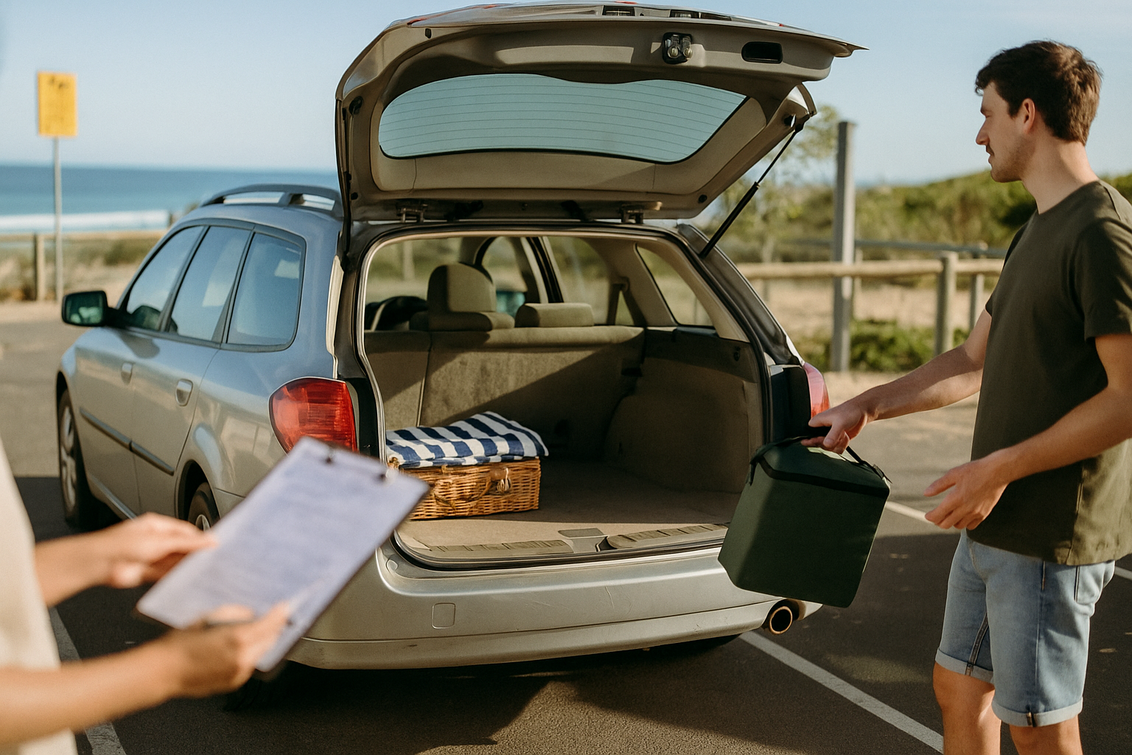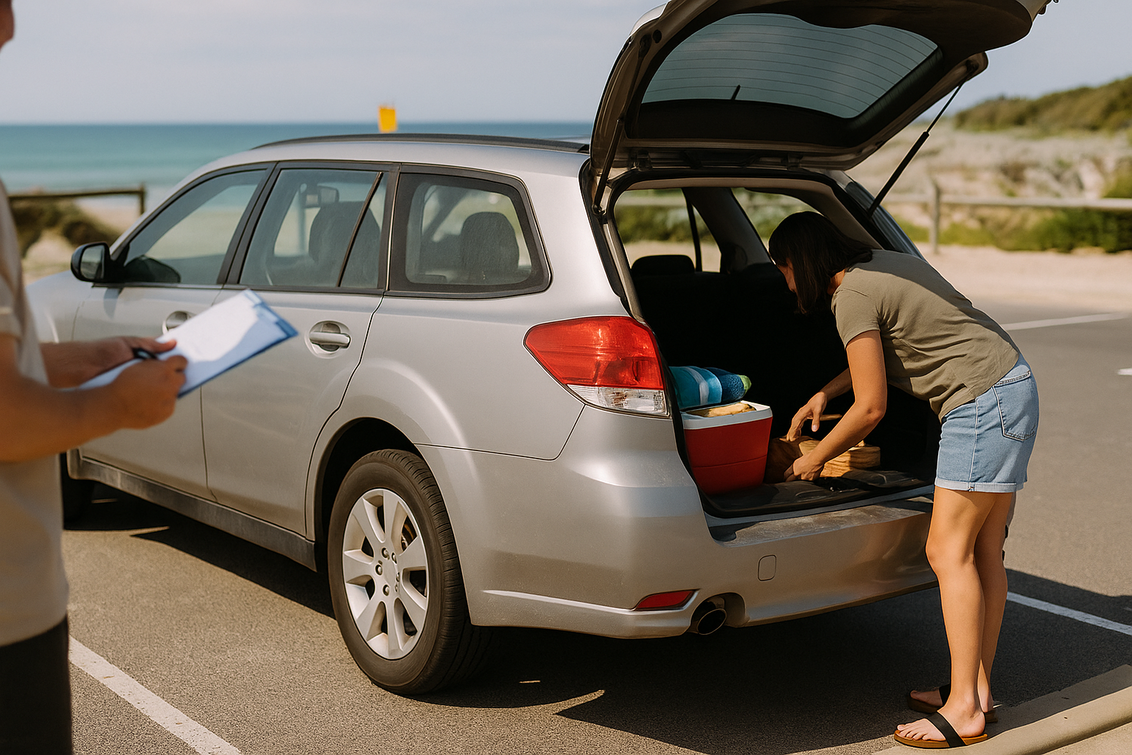Cars Guide
Estimated reading time: 11 minutes
Key takeaways
- Set a total budget that includes on-road costs, insurance, servicing and likely repairs.
- Choose where to buy: dealer for convenience, private for price, marketplaces for choice—verify everything.
- Filter by safety first using official guidance and safety ratings before shortlisting.
- Inspect in daylight, test drive thoroughly, and run a PPSR check before paying.
- Negotiate with evidence and complete all paperwork, insurance and rego transfers on time.
Table of contents
- Cars Guide
- Key takeaways
- Table of contents
- What this Cars Guide covers
- Step 1: Set your budget (and stick to it)
- Step 2: Decide where to shop
- Step 3: Check vehicle safety first
- Step 4: Inspect and test drive (bring backup if you can)
- Step 5: Verify the vehicle’s history (PPSR and more)
- Step 6: Negotiate and complete the paperwork
- Step 7: What to do right after you buy
- Common risks (and how to avoid them)
- Popular used cars in Australia
- Matching the vehicle to your purpose
- The total cost of ownership: what to plan for
- Trusted tools and services during your search
- Quick checklist before you pay
- FAQs
- Conclusion
- Important Disclaimer
What this Cars Guide covers
Buying a second-hand car, ute, van, minibus or truck can feel complex, so this Cars Guide keeps it simple. In the next few minutes, you’ll learn how to plan your budget, where to shop, how to check safety and history, and how to seal the deal with confidence.
We’ve blended practical steps with trusted sources in Australia, including official guidance from the NSW Government’s page on buying a used vehicle (linked below). You’ll also find links to CarsGuide reviews and GoCarz Sales resources to help you compare models and price trends.
- A simple step-by-step plan from search to handover
- How to avoid common risks and scams
- What to look for in safety, history and paperwork
- Typical running costs to consider
- Popular used cars in Australia
- Handy services if you need to move your new vehicle or your gear
Step 1: Set your budget (and stick to it)
Before you browse, set a clear, total budget. Include more than the purchase price. Factor in registration transfer, insurance, stamp duty, annual rego, routine servicing, and likely repairs. The NSW Government recommends planning for these extra costs early to avoid surprises (Buying a used vehicle — NSW Government). Tools like budgeting calculators can help you check affordability before you start shortlisting models.
A couple of tips:
- Keep a small “fix-up fund” aside for tyres, brakes or a battery if needed.
- If you’re comparing larger utes, SUVs or trucks with small cars, remember that bigger vehicles often cost more to run (fuel, tyres, servicing).
If you want support in shaping repayments and ownership costs, ask us about finance options.
Step 2: Decide where to shop
There are three main places to buy: dealerships, private sellers, and online marketplaces.
- Dealerships: Many buyers like the convenience. Dealers usually handle lots of the paperwork and may provide a statutory warranty depending on the vehicle and state rules (Buying a used vehicle — NSW Government). They often charge higher prices compared to private listings, but you gain peace of mind and clearer recourse if something’s not right.
- Private sellers: Prices can be lower, but you need to do more due diligence yourself. That includes confirming service history, arranging inspections, checking the PPSR, and making sure the seller is genuine.
- Online marketplaces: These can be useful to compare prices and features, but take care. Only deal with verifiable sellers and avoid offers that feel “too good to be true” (Buying a used vehicle — NSW Government).
If you’re weighing up a car versus a ute or small van for work, try some back-to-back test drives. We can line these up and walk you through the pros and cons for cargo space, towing and day-to-day costs. See stock ideas across used utes, used vans and used trucks for sale.
Step 3: Check vehicle safety first
Safety should be a top filter. The NSW Government recommends using resources like the Used Car Safety Ratings (UCSR), which are based on real-world crash data, to help compare models by safety (Buying a used vehicle — NSW Government). Aim for the safest vehicle that fits your budget and needs. Safety features like multiple airbags, ESC, and AEB can make a difference in daily driving.
Tip: If two cars fit your budget, pick the safer one. It’s a choice you’ll never regret.
Step 4: Inspect and test drive (bring backup if you can)
Always inspect the vehicle in good daylight and take it for a proper test drive. If you’re not confident, bring an independent mechanic or a knowledgeable friend. A professional inspection can reveal hidden issues before you commit.
What to ask the seller:
- Has the car been in any crashes or had major repairs?
- How many owners has it had?
- Is the service history complete and stamped?
- Is the odometer reading consistent with the age and history?
- Is the rego current and in the seller’s name?
What to check yourself:
- Cold start: Listen for rattles, knocks or smoke.
- Tyres: Even wear? Plenty of tread?
- Brakes: Smooth stopping, no shudder.
- Steering: Tracks straight, no vibrations.
- Fluids: Look for leaks or odd smells under the bonnet.
- Electronics: Lights, windows, A/C, infotainment.
- Body: Panel gaps, overspray, or misaligned parts that suggest repairs.
On the test drive:
- Start on quiet streets, then drive at highway speeds.
- Check engine power, transmission smoothness, and braking feel.
- For utes and vans, test reverse parking and tight turns. If you’ll tow, ask about the towbar rating and confirm the vehicle’s towing and payload limits in the owner’s manual (and match them to your needs).
If you’re not sure what to bring on the day, ask us for a simple vehicle inspection checklist.
Step 5: Verify the vehicle’s history (PPSR and more)
Before you pay a cent, run a PPSR check using the vehicle identification number (VIN). This confirms if the vehicle is recorded as stolen, written off, or under finance. In private sales, you must do this yourself; dealerships must ensure the vehicle is sold free of debt. Keep a copy of the PPSR certificate for your records.
Also review:
- Service history and receipts for major work.
- Any accident or insurance reports the seller can provide.
- Registration status and expiry.
A clean paper trail reduces risk and helps protect your money.
Step 6: Negotiate and complete the paperwork
Negotiate the price only after you’ve inspected, test driven, and checked the PPSR. Be polite but firm. Use your research on market pricing, servicing needs, tyre wear, or upcoming rego costs to justify your offer.
Before you sign or transfer funds:
- Ask for an itemised summary of fees and charges.
- Confirm which accessories, keys, manuals and service books are included.
- Read all terms and conditions. Do not sign or pay until you are fully satisfied.
Paperwork differs by where you buy:
- Dealer purchase: The dealer usually prepares the contract and helps with transfer forms. It’s still your job to read everything and ask questions before you sign (Buying a used vehicle — NSW Government).
- Private sale: You and the seller complete the transfer form and submit it within the time required by your state. You handle all checks and payments directly.
If you have a vehicle to swap, ask us for a quick trade-in valuation to help you budget.
Step 7: What to do right after you buy
- Arrange insurance before you drive away.
- Transfer registration into your name within the required timeframe for your state or territory.
- Store your signed contract, PPSR certificate, and receipts safely.
If you need to move the vehicle or shift gear to your new wheels, short-term hire can help. You can book a van or truck through Go With The Gecko or Gecko Live for flexible transport while you sort rego and insurance.
Common risks (and how to avoid them)
- Online scams: Beware of sellers who rush you, ask for deposits before inspection, or refuse to meet in person. Use trusted platforms and be cautious with payments. The NSW Government highlights the need for extreme care with unverifiable online sellers (Buying a used vehicle — NSW Government).
- Hidden problems: Private sellers don’t always disclose everything. Protect yourself with an independent inspection and complete history checks.
- Running costs blowouts: Bigger vehicles, utes and some SUVs can cost more to run than small cars and hatchbacks. Budget for fuel, tyres, and servicing accordingly.
- Finance owing: A PPSR check is essential to be sure the vehicle isn’t under finance from a previous owner.
Popular used cars in Australia
If you’re seeking safe, reliable all-rounders, these models are often strong picks for value and durability:
- Toyota Camry
- Toyota Corolla
- Mazda CX-5
- Mazda 3
Always compare safety ratings, service history and condition, as these matter more than a nameplate.
To dive deeper into model reviews, spec lists and ownership notes, browse buyer advice and road tests on CarsGuide.
Matching the vehicle to your purpose
Think about what you carry, where you drive, and how long you’ll keep the vehicle.
- Daily commuting: Small cars and hatchbacks are easier to park and cheaper to run. Check safety features and service history first.
- Growing family: Look for 5-star safety, good crash ratings, and features like AEB. Medium SUVs or wagons can offer more space.
- Work-ready ute: Focus on payload, towing capacity, tub size, and towbar specs. Check for accessories like liners, canopies, or roof racks. Inspect for signs of hard use (dents in the tub, worn towbar, sagging springs).
- Vans for tools or deliveries: Medium vans balance payload with fuel economy. Check door seals, cargo floor condition, and any shelving or electrics.
- Light trucks and minibuses: Confirm compliance with licence class, payload, seatbelts, and maintenance history. Plan for higher running costs and insurance.
Not sure what fits best? Compare options in used utes, used vans and used trucks for sale and ask us for side-by-side running cost guidance.
The total cost of ownership: what to plan for
Your true cost of ownership includes:
- Purchase price plus stamp duty and rego transfer (Buying a used vehicle — NSW Government)
- Insurance from day one
- Regular servicing and consumables (oil, filters, brakes, tyres)
- Fuel (bigger vehicles can use more)
- Annual registration fees (Buying a used vehicle — NSW Government)
Check the service book for upcoming major items like timing belts or transmission services. If they’re due soon, use that in your negotiation.
Trusted tools and services during your search
- Reviews and price guides: Use CarsGuide for expert reviews, owner tips, and current market advice.
- Moving your new car or your gear: Short-term van and truck hire from Go With The Gecko or Gecko Live can cover you until your rego and insurance are sorted.
- Market trends and ownership tips: The GoCarz Sales blog shares pricing trends, ownership advice, and news to keep you up to date.
Quick checklist before you pay
- Budget set and total costs considered (Buying a used vehicle — NSW Government)
- Safety rating checked (Buying a used vehicle — NSW Government)
- Inspection and test drive done
- PPSR certificate saved
- Price negotiated and all fees confirmed
- Insurance arranged before collection
- Rego transfer planned on time
FAQs
Should I buy from a dealer or a private seller?
Dealers cost more but often handle paperwork and may offer a statutory warranty depending on the vehicle and state rules (Buying a used vehicle — NSW Government). Private sellers can be cheaper, but you must verify the car’s condition and history yourself.
How do I avoid scams?
Meet the seller, inspect in person, and don’t transfer money until you’re satisfied. Be wary of urgent or “too good to be true” offers, and use trusted platforms (Buying a used vehicle — NSW Government).
What is a PPSR check and why is it important?
A PPSR check shows if a car is recorded as stolen, written off, or under finance. Dealers must sell cars free of debt, but in private sales you need to run this check yourself and keep the certificate.
What ongoing costs should I consider?
Insurance, registration, servicing, tyres, and fuel. Medium and large vehicles (including many utes and SUVs) typically cost more to run than small cars.
Can I use price guides and reviews to help me choose?
Yes. Expert reviews and price guides help you compare features, safety and value. Try CarsGuide for detailed model coverage.
Conclusion
Buying used is a smart way to get more car for your money. Start with a firm budget, filter by safety, inspect and test drive, and always run a PPSR check. Choose where to buy based on the support you want and the risk you’re comfortable with. If you plan well and check the details, you’ll land a vehicle that fits your life and your wallet.
Ready to take the next step? Explore GoCarzSales stock, book a test drive, or request a quick trade-in valuation. Our team can also guide you through finance, insurance and the paperwork so you can drive away with confidence.
Important Disclaimer
This guide is general information only. It is not financial, legal or mechanical advice. Always verify details such as roadworthy status, PPSR results, safety ratings, warranty coverage, and towing/payload limits, and consult qualified professionals or your relevant state authority before you buy.









